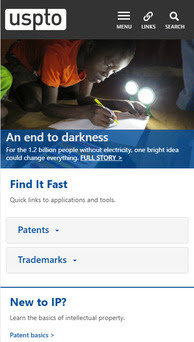The U.S. Naval War College
Library at the U.S. Naval War College, Newport, Rhode Island, is recruiting
for the position Copyright Librarian. The announcement will be posted on USAJobs website and run from September 24th
to September 28th. Applications
are made online at USAJobs. Be prepared to submit your resume and college
transcripts as part of your application package. To find job openings at the
Naval War College search on the keywords Naval
War College or Newport Rhode Island.
Individuals interested in this position can learn more about the application
process by visiting USAJobs and can
begin by creating their account and uploading their resume and other required
documentation. Applicants, including Department of Navy employees, will be
required to submit both eligibility and qualification supporting documents at
the time of application.
The Institution:
The Naval War College (NWC) is a Professional Military Education (PME)
institution serving the nation, the Department of Defense and the U.S. Navy. It is accredited by the New England
Association of Schools and Colleges to grant a master’s degree in national
security and strategic studies. The NWC
Library, named in honor of Rear Admiral Henry Effingham Eccles, recently adopted
a Learning Commons model with the completion of a new, state-of-the-art 86,000
square foot facility that brings together under one roof the Library, Writing
Center, Information Resources Department (IT), Dean of Students, Café, and
Bookstore.
The Library is composed of both general and classified
library collections serving approximately 650 resident students and 5,000
distance education students. The print collections contain over 200,000 books
and documents covering naval and military science, history and strategy,
management, economics, international relations, international law,
oceanography, and political science. Regional studies, leadership and ethics, cybersecurity,
and irregular warfare have been given increased emphasis over the last decade. The
Classified Library contains over 53,000 titles, including Joint and Naval Warfare
Publications, including doctrine, Joint Electronic Library, and the Joint
Doctrine, Education, and Training Information System.
The Position: This
is a newly created position located in the Circulation Department of the Naval
War College (NWC) Library, an organizational component of the Office of the
Provost, and reports to the Head of Circulation. The Circulation Department is primarily
concerned with collection management, circulation, print and electronic
reserves, document delivery services, and copyright.
The incumbent serves as a knowledgeable and service-oriented
licensing and copyright professional who leads the copyright program for the
NWC. This includes performing a variety
of functions and processes that relate to the implementation of copyright
policy, formulation of procedures, licensing negotiation, workflows, and
obtaining copyright permissions for all forms of published and unpublished
materials requested by all NWC faculty and staff.
Typical duties include:
- Manages the NWC's copyright
requirements and serves as the NWC copyright subject matter expert. Develops and communicates copyright
policies and procedures to the NWC students, staff and faculty, making
adjustments, providing instruction, and making recommendations for changes.
- Develops, organizes and
delivers seminars, programs, modules, and workshops to educate faculty,
students, and other campus partners about copyright, scholarly
communication, author’s rights, and licensing issues and practices in
tandem with the Research and Instruction Librarians.
- Collaborates with members
of the NWC faculty, staff, and senior leadership in researching and
processing copyright permissions for courseware readings and electronic
reserves.
- Responds to licensing
queries from within the Library and across the NWC and keeps up-to-date on
copyright law, licenses and fair dealing.
Liaises with the Staff Judge Advocate's Office and General
Counsel’s Office to provide copyright direction to NWC students, Staff and
Faculty.
- Monitors the cost-effective
use of funds for obtaining copyright permissions for the NWC and by
recommending the outright purchase of materials when appropriate.
- Maintains copyright
clearance, permission, and disapproval files as required by the Federal
Records Management program implemented by the College and U.S. Code and
copyright law.
- Liaises with other Joint
Professional Military Education and academic institutions to develop and
promote community engagement tools.
Liaises with other college and university copyright positions to
maintain currency, identify best practices, and share information
Required Qualifications and
Competencies: Your resume must provide evidence of sufficient experience
and/or education, knowledge, skills, and abilities to perform the duties of this
position. For more details see the job positing when it is released in USAJobs.
The Naval War College is an Equal Opportunity, Affirmative
Action Employer.
For additional information about the position please contact
Ms. Lori Brostuen, Deputy Director at 401-841-2642 or
email lori.brostuen@usnwc.edu.


